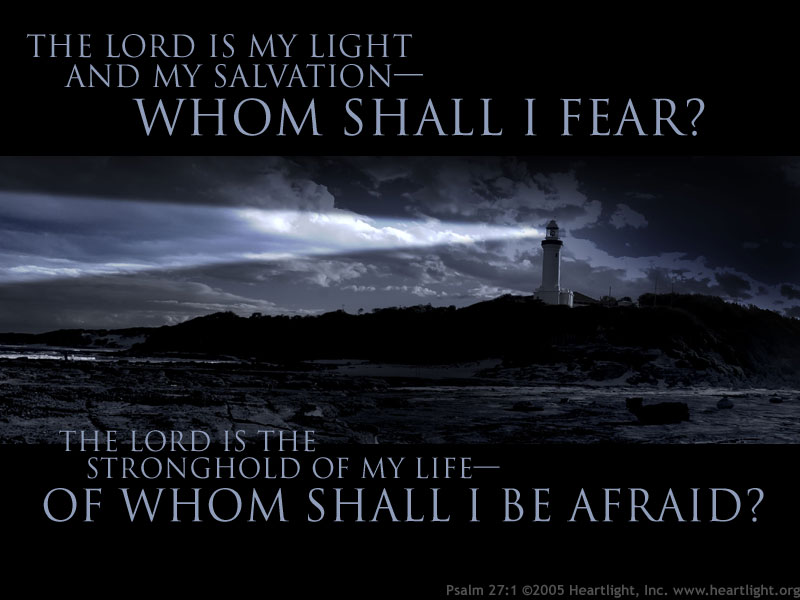Scripture Reading(s)
Psalm 27:1, 4-9
27:1 The Lord is my light and my salvation; whom shall I fear? The Lord is the stronghold of my life; of whom shall I be afraid?
27:4 One thing I asked of the Lord, that I will seek after: to live in the house of the Lord all the days of my life, to behold the beauty of the Lord, and to inquire in his temple.
27:5 For he will hide me in his shelter in the day of trouble; he will conceal me under the cover of his tent: he will set me high on a rock.
27:6 Now my head is lifted up above my enemies all around me, and I will offer in his tent sacrifices with shouts of joy; I will sing and make melody to the Lord.
27:7 Hear, O Lord, when I cry aloud, be gracious to me and answer me!
27:8 “Come,” my heart says, “seek his face!” Your face, Lord, do I seek.
27:9 Do not hide your face from me. Do not turn your servant away in anger, you who have been my help. Do not cast me off, do not forsake me, O God of my salvation!
Reflection(s)
 There are moments in our lives when we are going to face unexpected fear and anxiety. We all have come across moments in which we let our fear dictate our perspective on things. It is important to keep in mind that God not only understand our fears but He also wants us to trust Him enough to come to Him with our burdens. It is not enough to recognize that yes, God knows our hearts but when we come and pour out our fears at His feet, it is an indication that we trust Him and that our faith is not in our own strength but in His alone. Furthermore, our ultimate response to God intervening in our lives and taking away our fears is to praise Him and daily seek His face.
There are moments in our lives when we are going to face unexpected fear and anxiety. We all have come across moments in which we let our fear dictate our perspective on things. It is important to keep in mind that God not only understand our fears but He also wants us to trust Him enough to come to Him with our burdens. It is not enough to recognize that yes, God knows our hearts but when we come and pour out our fears at His feet, it is an indication that we trust Him and that our faith is not in our own strength but in His alone. Furthermore, our ultimate response to God intervening in our lives and taking away our fears is to praise Him and daily seek His face.
Here the Psalmist begins by acknowledging that God is His ultimate protector. He almost dares the readers to question His bold statement that if God is “the stronghold of my life” then who can have the power to stand against it? There is nothing can come close to the almighty power of God’s protective hand.
Next the Psalmist declares How God has protected Him. Verse 25 talks about how God protects Him as a rock and shelter. He has also now found victory over his fears, in this case his enemies.
Thirdly, His response is to praise Him and thank Him for all that He’s done. He wants to sing for joy at how God has delivered him from his fears.
Lastly, He makes a lasting plea that God will not abandon Him. Let us always remember how faithful God is towards us.
What then shall we say to these things? If God is for us, who can be against us? (Romans 8:31)
“Come,” my heart says, “seek his face!” Your face, Lord, do I seek. Do not hide your face from me. Do not turn your servant away in anger, you who have been my help. Do not cast me off, do not forsake me, O God of my salvation! (Psalm 27:28-29)
David wrote a slight majority of the Psalms we have in the Bible. This one was one attributed to David. David was known to write out his lamentations to the Lord. That is why so many of David’s psalms makes it seem as though David is on death’s door step. However, David’s practice is actually quite healthy and I would suggest that we could learn a thing or two from him.
How many of us forget to seek the Lord when we are distressed? Do we seek God to place our worries in His hands? Or do we seek the help of man? Do we try to do it alone? I would encourage all to cast your cares upon the Lord. Seek His face when you are in trouble. Have faith that He will hear your plea and deliver you.

